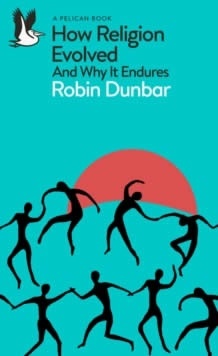How Religion Evolved
And Why It Endures

Editorial Penguin Books Ltd
Fecha de edición abril 2023 · Edición nº 1
Idioma inglés
EAN 9780241431795
352 páginas
Libro
encuadernado en tapa blanda
Dimensiones 111 mm x 181 mm
Resumen del libro
A fascinating analysis of the evolution of religion from the internationally renowned evolutionary psychologistWhen did humans develop spiritual thought? What is religion's evolutionary purpose? And in our increasingly secular world, why has it endured?Every society in the history of humanity has lived with religion. In How Religion Evolved, evolutionary psychologist Professor Robin Dunbar tracks its origins back to what he terms the 'mystical stance' - the aspect of human psychology that predisposes us to believe in a transcendent world, and which makes an encounter with the spiritual possible. As he explores world religions and their many derivatives, as well as religions of experience practised by hunter-gatherer societies since time immemorial, Dunbar argues that this instinct is not a peculiar human quirk, an aberration on our otherwise efficient evolutionary journey.
Rather, religion confers an advantage: it can benefit our individual health and wellbeing, but, more importantly, it fosters social bonding at large scale, helping hold fractious societies together. Dunbar suggests these dimensions might provide the basis for an overarching theory for why and how humans are religious, and so help unify the myriad strands that currently populate this field. Drawing on path-breaking research, clinical case studies and fieldwork from around the globe, as well as stories of charismatic cult leaders, mysterious sects and lost faiths, How Religion Evolved offers a fascinating and far-reaching analysis of this quintessentially human impulse - to believe.
Biografía del autor
Robin Dunbar es antropólogo, biólogo y profesor Emérito de Psicología Evolutiva de la Universidad de Oxford. Fue director del Instituto de Antropología Cognitiva y Evolutiva del Departamento de Psicología Experimental de la Universidad de Oxford.<br> Su investigación se centra en tratar de comprender los mecanismos conductuales, cognitivos y neuroendocrinológicos que sustentan los vínculos sociales en los primates (en general) y los humanos (en particular).








